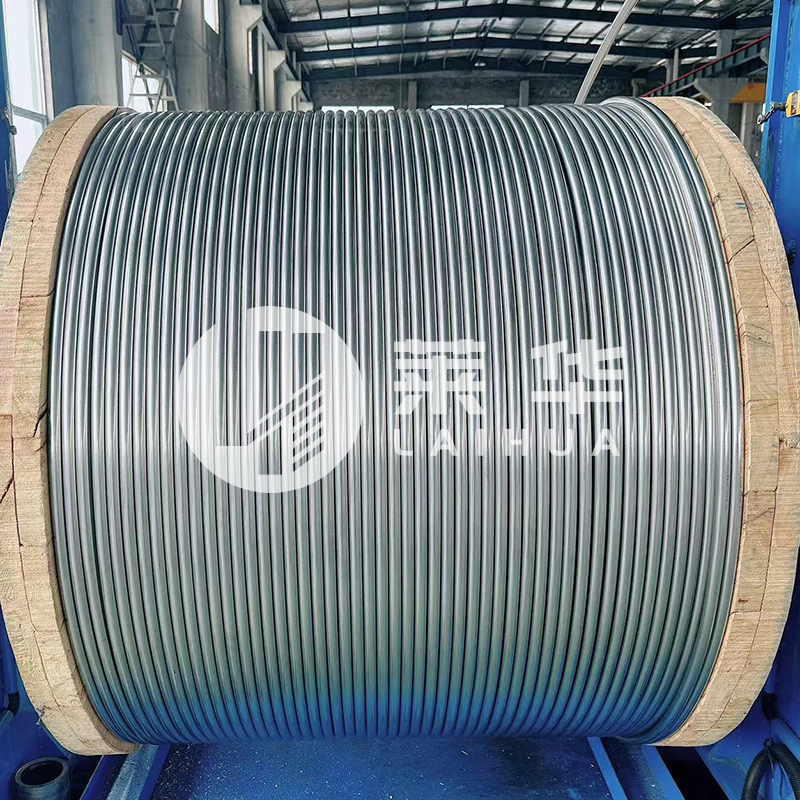Cat:Products
Continuous tubing, also known as flexible tubing or flexible tubing, is widely used in the fields of well workover, logging and drilling, etc. Its pro...
See Details
In the oil and gas industry, the integrity of the pipeline system is critical. Contaminated oil can lead to equipment failures, operational downtime, and increased costs. Among the various pipeline materials, stainless steel continuous oil pipe has emerged as a reliable solution for maintaining oil purity.
Oil contamination refers to the introduction of foreign substances into the oil, which can include water, particulates, chemicals, and microbial growth. Contaminated oil can compromise engine performance, corrode machinery, and reduce overall efficiency in industrial processes. The sources of contamination are often external, such as environmental exposure, or internal, including pipeline corrosion or wear of mechanical components. Preventing contamination requires careful attention to both the material used and the design of the pipeline system.
Stainless steel is widely recognized for its corrosion resistance, mechanical strength, and chemical stability. These properties make it an ideal choice for continuous oil pipelines. Unlike carbon steel or other alloys, stainless steel forms a protective oxide layer on its surface, which prevents reactions with water, chemicals, or other contaminants. This protective layer is self-healing, meaning that even if the surface is scratched or damaged, the material can naturally restore its resistance to corrosion.
In addition to corrosion resistance, stainless steel offers high mechanical strength. Continuous oil pipelines must withstand pressure fluctuations, temperature variations, and mechanical stresses during operation. Stainless steel maintains its structural integrity under these conditions, reducing the risk of cracks, leaks, or metal debris entering the oil stream. By maintaining a stable and clean internal surface, the pipes minimize the chances of contaminant intrusion.
One of the key advantages of stainless steel continuous oil pipes is their seamless design. Seamless pipes are manufactured from a single piece of steel, eliminating joints or welds that can act as weak points in the pipeline. Welded or jointed pipes are prone to micro-gaps, corrosion at the seams, and potential buildup of contaminants. Continuous stainless steel pipes avoid these issues, offering a smooth internal surface that facilitates consistent oil flow and minimizes areas where impurities can accumulate.
The manufacturing process of continuous stainless steel pipes also ensures uniformity in thickness and composition. This consistency reduces the likelihood of defects that could compromise the pipe’s integrity and introduce contaminants. Quality control measures during production, such as ultrasonic testing and surface inspection, further enhance the reliability of these pipes in sensitive oil transport applications.
Oil pipelines often encounter chemicals either present in crude oil or introduced during processing. Stainless steel continuous oil pipes provide resistance to a wide range of chemicals, including acids, bases, and salts. This chemical resistance prevents reactions that could generate unwanted byproducts or corrosion products, which might contaminate the oil. By maintaining chemical stability, stainless steel pipes protect the quality of oil during both transportation and storage.

Oil pipelines are subject to varying temperatures and pressures, especially in industrial or offshore environments. Stainless steel continuous pipes can withstand high temperatures without deforming or losing strength. This thermal stability is crucial because fluctuating temperatures can cause condensation or chemical reactions inside the pipeline, both of which may lead to contamination. Furthermore, the high pressure tolerance of stainless steel reduces the risk of leaks and mechanical failure, ensuring that the oil remains uncontaminated throughout its journey.
Another factor in contamination prevention is the ease of cleaning and maintenance. Stainless steel continuous oil pipes have smooth internal surfaces that allow for thorough cleaning without the risk of residue buildup. Regular maintenance, such as flushing and inspection, is more effective in stainless steel pipes compared to other materials, ensuring that any potential contaminants are removed promptly. The durability of stainless steel also means that maintenance activities are less likely to damage the pipe, preserving its protective properties.
Stainless steel continuous oil pipes are widely used in systems where oil purity is essential. This includes transportation of lubricating oils, hydraulic oils, and refined petroleum products. In refineries and chemical plants, maintaining the quality of oil is vital for operational efficiency and equipment longevity. Stainless steel pipes ensure that contaminants such as rust, scale, and metal particles do not enter the oil, protecting pumps, valves, and engines from damage.
In addition, stainless steel pipes are often employed in offshore oil platforms where environmental conditions are harsh. Exposure to saltwater, humidity, and extreme temperatures can accelerate corrosion and contamination in conventional pipelines. The inherent corrosion resistance of stainless steel makes it well-suited for these environments, safeguarding the oil supply against contamination and minimizing the need for frequent replacements or repairs.
Pipeline systems for oil transport must comply with strict regulatory standards to ensure safety and quality. Stainless steel continuous oil pipes meet or exceed many industry standards for material quality, corrosion resistance, and mechanical performance. By using certified stainless steel pipes, companies can ensure that their oil transport systems adhere to safety guidelines and maintain the highest standards of oil purity.
Investing in stainless steel continuous oil pipes provides long-term benefits in contamination prevention. The initial cost of stainless steel may be higher than alternative materials, but the durability, resistance to corrosion, and reduced maintenance requirements result in lower overall lifecycle costs. Preventing oil contamination also protects downstream equipment, reduces production losses, and enhances overall operational efficiency.
Preventing oil contamination is a critical aspect of maintaining the efficiency, safety, and longevity of oil transport systems. Stainless steel continuous oil pipes play a vital role in this process through their corrosion resistance, seamless construction, chemical stability, and mechanical strength. Their smooth internal surfaces facilitate clean oil flow and allow for effective maintenance, while their durability ensures long-term reliability. By choosing stainless steel continuous oil pipes, industries can safeguard oil quality, reduce operational risks, and optimize pipeline performance.

Contact Us